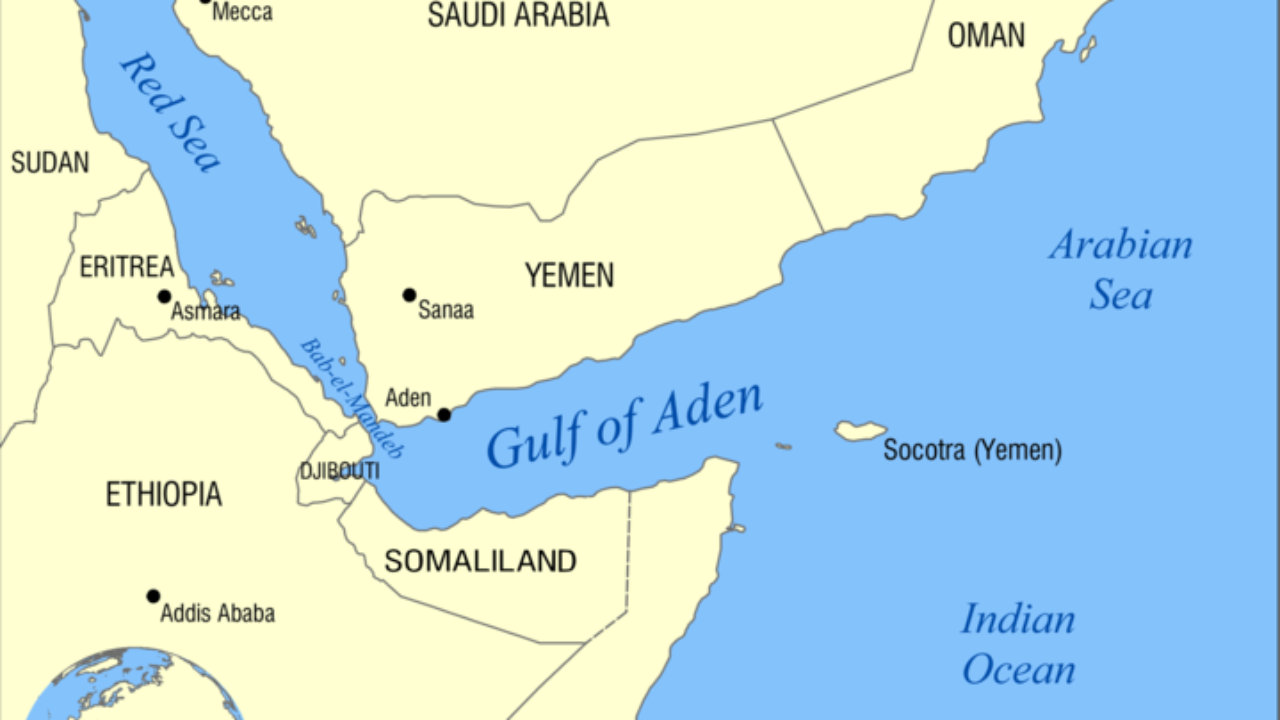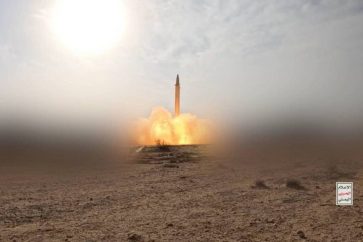The Western media has focused extensively on Yemen’s resolute stance, which has stated unequivocally that they “will prevent navigating all ships heading to the Zionist entity from any nationality if food and medicine continue to be denied access to the Gaza Strip, as it will become a legitimate target for our armed forces.”
Yemen’s commitment to maintaining global commercial trade was noteworthy in the aforementioned declaration, underscoring that they are “keen on maintaining the flow of trade movement for all countries and vessels, except those linked to ‘Israel’ or transporting goods to Israeli ports.”
Following this resolute decision, the Western media aggressively spun a narrative to cast aspersions on the Yemen Armed Forces, accusing them of disrupting the smooth flow of global maritime traffic.
BBC Criminalizes Yemen
The British Broadcast Corporation (BBC) published an article entitled “How missiles from Yemen could escalate the Israel-Gaza war.” The author, Frank Gardner, BBC security correspondent, accused the Yemenis of being an “Iran-backed militia,” predicting that if the US decides to retaliate for what he called “Houthi attacks” in the Red Sea, there will be a wide-scale war.
“If the Houthis in Yemen continue to fire missiles beyond their borders, then eventually the US may decide it needs to retaliate by targeting those missile launch sites. If that happens then there follows the risk that Iran, which supports the Houthis, could also retaliate, potentially leading to the nightmare scenario of a direct conflict between Iran and the US. For now, this is something both sides wish to avoid,” Gardner pointed.
Financial Times: Shipowners Demand Protection
The British daily business newspaper featured a comprehensive article titled “Houthi attacks on ships in the Red Sea raise the alarm for global trade.” Presented within the newspaper’s “global trade” category, the article underscores shipowners’ call for heightened military protection along maritime routes due to apprehensions surrounding the conflict’s potential escalation in the Middle East. However, it erroneously blames the Yemeni Armed Forces for jeopardizing all vessels, irrespective of ownership or destination—a stark contradiction to the earlier highlighted Yemeni declaration.
“Shipowners have called for more military protection on maritime routes in the Middle East after attacks by Iran-backed rebels in the Red Sea sparked fears of new disruptions to global trade, including of energy supplies,” authors claimed.
JINSA Urges Biden to Interfere
The US Jewish Institute for National Security (JINSA) released an extensive study titled “Failure to deter Houthi attacks puts global shipping at risk.” This detailed analysis delineates instances of the Yemeni armed forces targeting ships navigating the Red Sea. The institute falsely claims that Iran possesses the capability to significantly disrupt commercial traffic in two crucially important water passages: the Persian Gulf’s Strait of Hormuz and the Red Sea’s Bab al-Mandeb. Conclusively, the study emphasizes that “Biden must undertake resolute actions aimed at curbing the rise of the Houthi faction’s influence and power.”
The misleading accusations stemming from Western sources highlight their hypocrisy, evident as the occupying military persistently bombs Syrian airports while posing threats to various ports and airports. Yemen’s actions have unsettled Western unjust powers, particularly those who fear people standing firm against oppression and backing the Palestinian cause.
Source: Al-Manar English Website




